The Roundup Top Ten for April 1, 2022

Antiabortion Movement Gunning for Contraceptive Rights, Tooby Anya JabourA century ago, sex researcher Katharine Bement Davis was silenced because she fought to redefine women's sexuality and contraceptive use as normal and fight for its decriminalization. The right today wants to undo her legacy through the courts. |
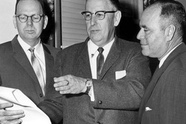
Using "The Children" as an Excuse for Anti-LGBTQ Laws is Nothing New for Floridaby Julio Capó Jr. and Shevrin JonesThe 1950s Johns Committee was formed by the state legislature to root out communist subversion in Florida. Not finding any red influence in the NAACP, they turned to scapegoating LGBTQ Floridians. |
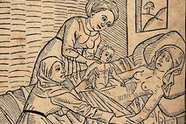
The Religious History of Caesarean Surgery and the Abortion Debateby Elizabeth O'BrienIn the 18th century, priests in Spanish colonies in the Americas were required to perform Caesaran operations on pregnant women whose own lives were beyond saving in order to baptize their fetuses, helping to develop the Catholic doctrine that the unborn already had souls. |

You Can't Teach "Pros and Cons" When it Comes to Empireby Priya SatiaFar from encouraging critical thinking, the "balance sheet" approach to teaching historical atrocities like slavery or imperialism flatters the mythologies created by the powerful to excuse violence against others, says a historian of empire and parent of a high school student. |

KBJ Confirmation Questions Show Republicans Willing to Throw Out Vast Swaths of Civil Rights Lawby Heather Cox Richardson"Madison was on to something when he warned that there was a connection between establishing a religion and destroying American democracy." |
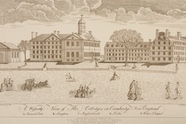
A Pledge to Recuse by KBJ Likely Means the End of Affirmative Actionby Keisha N. BlainWith a challenge to Harvard's affirmative action looming, Judge Jackson's pledge to recuse herself means that the Supreme Court is more likely to rule that affirmative action in private university admissions is unconstitutional, with the likely consequence of increasing racial inequality. |
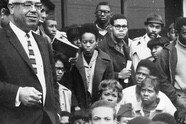
The Delicate Balancing Act of Black College Presidents in the Civil Rights Eraby Eddie R. ColeAlthough Black college presidents were often reluctant to publicly endorse sit-ins for fear of antagonizing segregationist state officials, they often were able to increase opportunity for individual students by lobbying for increases to public scholarship funds that sent Black students out of state to pursue degrees. |
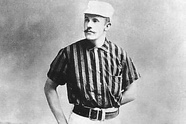
Baseball's Labor Warby Peter DreierOrganizing the Brotherhood of Professional Base-ball Players in 1885, John Montgomery Ward asked whether team owners could treat their players as chattel through the "reserve clause." Today's players seem to be learning some similarly radical lessons from the recent owner's lockout. |

Can the Past be Repaired?by Sophie GonickMenachem Kaiser's memoir of attempts to reclaim a Polish building lost by his Jewish grandfather during World War II raises questions about the right to property as parts of historical memory, and the problematic aspects of seeking reparation through restoration of ownership. |

"Bridgerton" Keeps Perpetuating the Hollywood Corset Mythby Hilary DavidsonHollywood tends to portray women's historical fashions through a lens formed by today's ways of dressing, and ignore the more complex material and social history of clothing. |